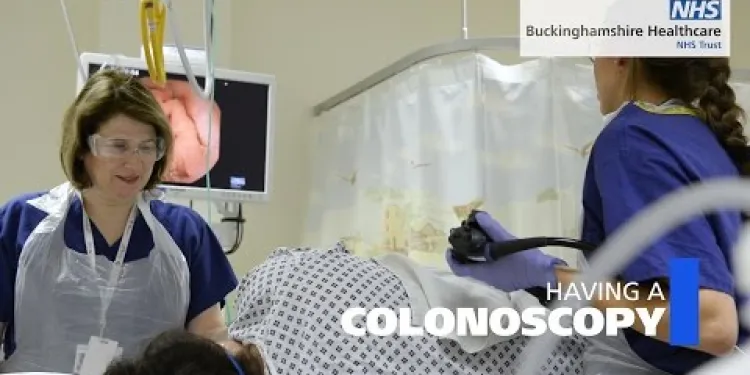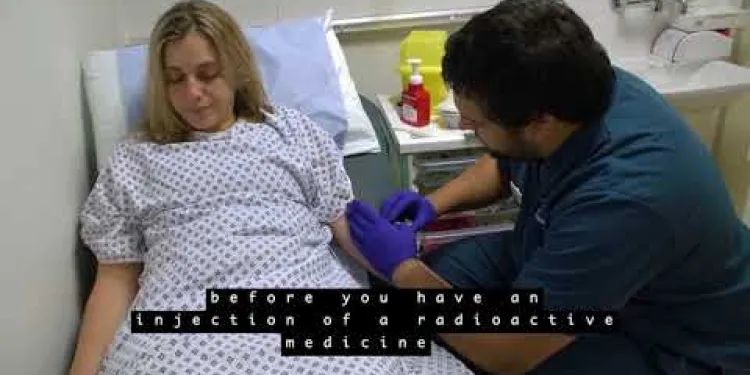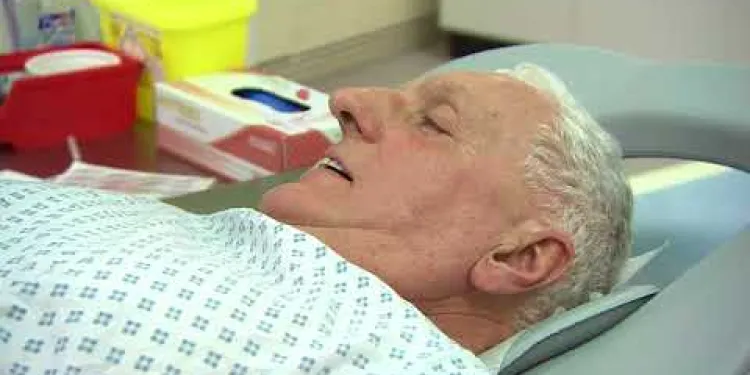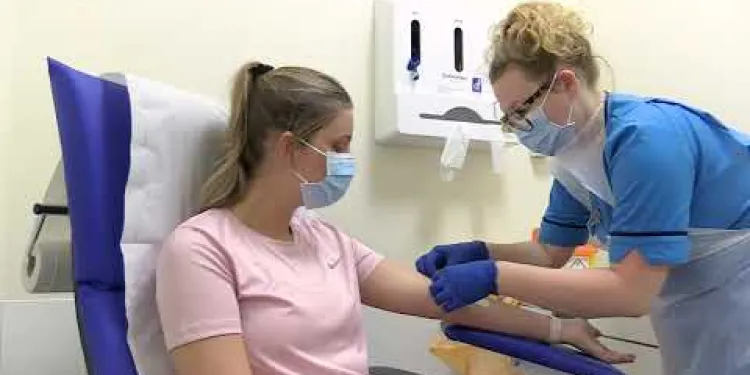
Find A Professional
More Items From Ergsy search
-

When should I see a doctor for psoriasis?
Relevance: 100%
-

What causes psoriasis?
Relevance: 92%
-

What is psoriasis?
Relevance: 86%
-

Can stress trigger psoriasis flare-ups?
Relevance: 83%
-

Can diet affect psoriasis?
Relevance: 81%
-

What role do lifestyle changes play in managing psoriasis?
Relevance: 78%
-

How is psoriasis diagnosed?
Relevance: 77%
-

Is there a cure for psoriasis?
Relevance: 73%
-

Psoriasis | NHS
Relevance: 68%
-

Are there home remedies for psoriasis?
Relevance: 60%
-

How to treat psoriasis
Relevance: 58%
-

What are systemic medications for psoriasis?
Relevance: 57%
-

What are topical treatments for psoriasis?
Relevance: 55%
-

What treatment options are available for psoriasis?
Relevance: 52%
-

What should I discuss with my doctor before starting Ozempic?
Relevance: 49%
-

Do I need to consult a doctor before exercising during pregnancy?
Relevance: 47%
-

Treating scalp psoriasis
Relevance: 45%
-

What should I discuss with my doctor before starting Ozempic?
Relevance: 40%
-

How often should someone with asthma see a doctor?
Relevance: 35%
-

How important is it to keep the skin moisturised with psoriasis?
Relevance: 33%
-

Should I share the results of my self-tests with my eye doctor?
Relevance: 32%
-

When should I see a doctor for nettle rash?
Relevance: 31%
-

Can over-the-counter treatments help with psoriasis?
Relevance: 29%
-

Can phototherapy help with psoriasis?
Relevance: 29%
-

Should I see a doctor for a cold?
Relevance: 18%
-

How soon should you see a doctor if you suspect appendicitis?
Relevance: 17%
-

How is Carpal Tunnel Syndrome diagnosed?
Relevance: 17%
-

Is there any follow-up required after a womb lining test?
Relevance: 17%
-

How should I prepare for a womb lining test?
Relevance: 16%
-

Having a colonoscopy in hospital - Patient Guide
Relevance: 15%
-

What is the Womb Lining test?
Relevance: 14%
-

Who can administer Botox?
Relevance: 14%
-

How the Shortage of GPs is Affecting Patient Care Across the UK
Relevance: 13%
-

Having an anaesthetic for your operation - for over 8s
Relevance: 13%
-

Your PET/CT scan at University College Hospital
Relevance: 13%
-

Endoscopy Procedures | Colonoscopy
Relevance: 12%
-

So, you're having a CT scan...
Relevance: 12%
-

The FDG PET Scan: What to expect
Relevance: 12%
-

Going For a CT Scan
Relevance: 12%
-

What happens after a womb lining test?
Relevance: 11%
Understanding Psoriasis
Psoriasis is a chronic autoimmune condition that primarily affects the skin, causing red, scaly patches. While it can occur at any age, it is most commonly diagnosed in adults. The severity of psoriasis varies greatly and can impact one's quality of life significantly. Understanding when to seek medical advice is crucial for effective management and treatment.
When to Consult a GP
In the UK, the first step if you suspect you have psoriasis is usually to see your General Practitioner (GP). You should consult a GP if you experience persistent skin problems or if your symptoms are having a significant impact on your daily life. Your GP can initially diagnose psoriasis based on the appearance of your skin and your medical history. Early diagnosis and treatment can prevent the condition from worsening and avoid complications.
Signs That Require Medical Attention
It is important to see a doctor if your psoriasis symptoms become severe or if they extend beyond occasional flare-ups. Signs that warrant a doctor's visit include extensive skin involvement, intense itching and burning, discomfort that disrupts sleep, joint pain or swelling (which could indicate psoriatic arthritis), or a significant impact on emotional well-being. These symptoms may require professional management and intervention.
Treatment and Specialist Referral
If your psoriasis is not responding to initial treatments or if it requires more specialised care, your GP may refer you to a dermatologist. Treatments for psoriasis can vary based on severity, ranging from topical treatments and phototherapy to systemic medications. Specialist treatments often require expertise beyond primary care, making referral to a dermatologist a crucial step for complex cases.
Regular Monitoring and Follow-Up
Once you have a confirmed diagnosis of psoriasis, regular monitoring and follow-up appointments are essential. Consistent evaluation by healthcare professionals ensures that your treatment plan is effective and allows for adjustments if your condition changes. Regular visits also provide an opportunity to discuss any concerns or new symptoms you might have.
Managing Overall Health
Psoriasis is often associated with other health conditions known as comorbidities, including cardiovascular disease, metabolic syndrome, and mental health issues. It is important to discuss any additional health concerns with your GP, as a comprehensive approach to your overall health can help manage psoriasis more effectively.
Conclusion
In summary, seeing a doctor for psoriasis is important if symptoms are persistent, severe, or affecting your quality of life. Early and effective management of psoriasis can alleviate symptoms and prevent complications. Regular monitoring, appropriate treatments, and consideration of overall health can help you manage psoriasis effectively. Do not hesitate to seek medical advice to ensure you receive the best care possible.
Understanding Psoriasis
Psoriasis is a skin problem. It makes red, scaly patches on your skin. It happens because the body's defense system turns on itself. Anyone can get psoriasis, but it mostly happens in grown-ups. Psoriasis can be mild or severe. It can make life hard. It is important to know when to go to the doctor for help with psoriasis.
When to See a GP
If you think you have psoriasis, you should go to your General Practitioner (GP) in the UK. Go to the GP if your skin problems last a long time or if they make daily life hard. The GP can tell if you have psoriasis by looking at your skin and asking about your health. Getting help early can stop psoriasis from getting worse.
When to Visit a Doctor
You should see a doctor if your psoriasis gets very bad or happens a lot. Go to the doctor if you have a lot of skin problems, very itchy or burning skin, pain that keeps you awake, pain or swelling in your joints (which might mean psoriatic arthritis), or if it affects your feelings. These problems need help from a doctor.
Treatment and Seeing a Specialist
If treatments do not help your psoriasis or if you need special care, your GP may send you to a skin doctor (dermatologist). Treatments can be creams, light therapy, or strong medicines. A dermatologist knows a lot about these treatments and can help if your psoriasis is hard to treat.
Regular Check-Ups
Once you know you have psoriasis, it is important to have regular check-ups. Your doctor will make sure your treatment works and change it if needed. These visits are a good time to talk about any new problems or worries.
Taking Care of Your Health
Psoriasis can be linked to other health problems like heart disease, diabetes, or feeling very sad. Talk to your GP about your full health to help control psoriasis better. Keeping all areas of your health in check can help with psoriasis.
Conclusion
To sum up, you should see a doctor for psoriasis if it does not go away, if it's very bad, or if it makes life hard. Getting help early can make symptoms better and stop other problems from happening. Regular doctor visits, right treatments, and being healthy can help you manage psoriasis. Always feel free to ask for medical help to get the care you need.
Frequently Asked Questions
What are the common symptoms of psoriasis that should prompt a doctor's visit?
If you notice red patches of skin covered with thick, silvery scales or if you experience dry, cracked skin that may bleed, consider seeing a doctor.
How severe should my psoriasis symptoms be before consulting a doctor?
If over-the-counter treatments are not effective or if symptoms worsen, it's advisable to see a doctor. Severe cases affecting daily life should be addressed by a healthcare professional.
Can psoriasis indicate other health problems that require medical attention?
Yes, psoriasis can be associated with other health conditions such as psoriatic arthritis or cardiovascular disease, so seeing a doctor can help manage overall health.
Should I see a doctor if my psoriasis affects my joints?
Yes, joint pain or swelling could indicate psoriatic arthritis, which a doctor should evaluate.
Is it necessary to visit a doctor if I experience itching and discomfort from psoriasis?
If itching and discomfort are severe or persistent, consulting a doctor can help find effective treatments.
When should I seek urgent care for a psoriasis flare-up?
If you experience a sudden worsening of symptoms or signs of infection, seek medical attention promptly.
Does emotional stress from psoriasis symptoms warrant a doctor's visit?
Yes, if psoriasis is causing emotional distress or affecting mental health, a healthcare provider can offer support and treatment options.
At what point should a child with psoriasis see a dermatologist?
If a child's symptoms are moderate to severe or affecting quality of life, it's important to consult a pediatric dermatologist.
Should I see a doctor if my psoriasis treatment is no longer effective?
Yes, a doctor can reassess your treatment plan and suggest new therapies if current ones are ineffective.
Can lifestyle changes reduce the need for seeing a doctor for psoriasis?
Lifestyle changes can help manage symptoms, but regular medical guidance is crucial for optimal treatment and management.
Is it necessary to see a doctor if I suspect I have guttate psoriasis?
Yes, a doctor can confirm the diagnosis and provide appropriate treatment options for guttate psoriasis.
Should I see a doctor if I have a family history of psoriasis and start showing symptoms?
Yes, a family history increases risk, so early consultation can help in managing symptoms effectively.
Can home remedies replace medical consultation for psoriasis?
Home remedies may alleviate mild symptoms, but professional medical advice is important for comprehensive management.
Is it important to seek medical advice if I develop psoriasis during pregnancy?
Yes, a doctor can offer safe treatment options to manage psoriasis during pregnancy.
What should I do if my psoriasis symptoms start affecting my sleep?
Consult a doctor as they can suggest treatments to help reduce symptoms and improve sleep quality.
Will seeing a doctor help if my psoriasis symptoms are mostly cosmetic?
Yes, a doctor can help improve skin appearance and prevent symptoms from worsening, which can boost confidence.
Should I consult a doctor if I have psoriasis and develop new skin symptoms?
Yes, new symptoms should be evaluated, as they may indicate a change in condition or a different skin issue.
Can regular check-ups with a doctor help in managing psoriasis?
Yes, regular evaluations can help track progress, adjust treatments, and monitor for complications.
Is it necessary to see a dermatologist specifically for psoriasis?
Dermatologists are specialists in skin conditions, so their expertise is valuable in treating psoriasis.
Should I see a doctor if psoriasis is affecting my nails?
Yes, nail psoriasis can cause discomfort and may lead to more serious complications if untreated.
When should you see a doctor for psoriasis?
Look out for these signs:
- Red patches on your skin
- Dry, cracked skin that might bleed
- Itchy or sore skin
- Thick nails
- Swollen or stiff joints
If you notice these signs, tell an adult. They can help you go to the doctor.
Using pictures or asking someone to explain can help too!
If you see red spots on your skin with shiny, silvery layers, or if your skin is very dry and has cracks that bleed, it’s a good idea to visit a doctor.
When should I see a doctor about my psoriasis?
If your skin feels or looks very bad, see a doctor.
Some signs are:
- Red and itchy skin patches.
- Skin that hurts or bleeds.
- If creams don't help the skin get better.
- If it makes you sad or worried.
Reading tools like audiobooks or asking a friend for help can make reading easier.
If medicines from the shop do not help, or if you feel worse, you should go to the doctor. If it is very bad and stops you from doing your daily activities, a doctor can help.
Can psoriasis show other health problems that need a doctor?
Psoriasis is a skin problem. It can sometimes be linked with other health issues. These can include joint pain, known as psoriatic arthritis. It might also be linked with heart problems.
It is important to see a doctor. A doctor can help you stay healthy.
Here are some tools that can help:
- A calendar or app to keep track of doctor visits.
- A notebook to write down questions for the doctor.
Do I need to see a doctor if my skin problem makes my joints hurt?
Yes, if your joints hurt or are swollen, it might be a sign of a sickness called psoriatic arthritis. You should go to a doctor to check it out.
Do I need to go to the doctor if I feel itchy and uncomfortable because of psoriasis?
Here’s some help to make reading easier:
- Read each word slowly.
- Ask an adult to read with you.
- Use a finger to follow the words.
- Try reading out loud.
If you are itchy or uncomfortable for a long time, seeing a doctor can help you feel better.
When should I get help fast for a psoriasis skin problem?
If you feel suddenly worse or think you might have an infection, go see a doctor quickly.
Should you see a doctor if psoriasis makes you feel upset?
If your psoriasis makes you feel sad, worried, or stressed, it is a good idea to talk to a doctor. A doctor can help you feel better.
Try talking to family or friends about how you feel. They can support you.
You can also try relaxation exercises, like deep breathing, to help with stress.
If having psoriasis makes you feel upset or sad, a doctor or nurse can help you feel better. They have ways to help and treatment choices for you.
When should a child with psoriasis visit a skin doctor?
If a child's skin problems are bad or making them unhappy, it's important to see a special skin doctor for kids.
Should I go to the doctor if my psoriasis medicine doesn't work anymore?
If your skin medicine stops helping, you should talk to your doctor.
Your doctor can help find new treatments.
It is important to keep your skin healthy.
Bring someone with you to the doctor if that helps you feel better.
Drawing or writing down how you feel can help you explain to the doctor.
Yes, a doctor can look at your treatment plan again. The doctor can suggest new ways to help if the current ones are not working.
If you find reading hard, you can try using pictures, audio books, or ask someone to read with you. These can make understanding easier.
Can changing how you live help with psoriasis so you visit the doctor less?
Psoriasis is when your skin gets red and flaky. Can things like eating well, exercising, and relaxing help you need the doctor less? Let’s find out!
Here are some tips:
- Eat Healthy: Try to eat fruits, vegetables, and whole grains. They are good for your skin.
- Stay Active: Move your body with fun activities like walking or playing a sport.
- Relax: Try things like deep breathing or listening to music to help you feel calm.
Using these tips might help your skin feel better, but it’s still good to talk to a doctor to make sure you are doing the right things for your body.
Changing some things you do every day can help you feel better. But it's very important to see a doctor to know how to take care of yourself the best way.
Should I see a doctor if I think I have guttate psoriasis?
If you think you have guttate psoriasis, it is a good idea to see a doctor. The doctor can help you understand what is happening to your skin and how to feel better.
You can use tools like picture charts to show your symptoms or apps that remind you about your doctor visits.
Yes, a doctor can find out if you have guttate psoriasis. They can also tell you the best ways to treat it.
Do I need to visit a doctor if my family has psoriasis and I see signs of it on me?
If people in your family have had psoriasis and you notice signs of it on your skin, it is a good idea to see a doctor. The doctor can help check if you have psoriasis and tell you what to do next.
Talking to a doctor can help you understand your symptoms and get the right help. They can also answer any questions you have.
Having someone with you at the appointment can be helpful. You can also write down your questions so you remember to ask them.
If people in your family have had this problem, it might be easier for you to get it too. Talk to a doctor early so they can help you feel better.
Can home treatments take the place of seeing a doctor for psoriasis?
Psoriasis is a skin problem that makes your skin red, itchy, and scaly.
Some people try home treatments like using creams or oils.
But it's important to talk to a doctor if you have psoriasis.
A doctor can give you advice and medicine to help.
You can also use tools like picture books or videos to learn more.
Simple treatments you can do at home might help if you feel a little unwell. But it's really important to see a doctor to get the best care and advice.
Should I see a doctor if I get psoriasis while pregnant?
Yes, a doctor can help you treat psoriasis safely when you are pregnant.
What can I do if my psoriasis makes it hard to sleep?
Psoriasis can make sleeping tough. Here are some tips to help sleep better:
- Try to keep a calming bedtime routine, like reading or a warm bath.
- Use soft, clean sheets that are gentle on the skin.
- Keep your room cool and dark.
- Talk to a doctor for advice or treatment that might help.
- Listen to calming music or sounds to relax before bed.
See a doctor. They can help you feel better and sleep well.
Should I see a doctor if my psoriasis mostly affects how I look?
If you have psoriasis, talking to a doctor can help. Even if it just changes how your skin looks, a doctor can give advice. They might have tips or treatments to make your skin feel better.
If reading is hard, you can:
- Ask someone to read with you.
- Use audiobooks or apps that read text aloud.
- Write down questions to ask the doctor so you remember what to say.
Yes, a doctor can help make your skin look better and stop problems from getting worse. This can make you feel more confident.
Should I see a doctor if I have psoriasis and get new skin problems?
If you have psoriasis and see new skin changes, it is a good idea to talk to a doctor. They can help you understand what is happening with your skin.
To help you, you can:
- Write down any changes you see on your skin.
- Take pictures of the changes to show the doctor.
- Use a calendar to track when the changes happen.
Talking to a doctor can help you feel better.
Yes, you should check with a doctor if you get new symptoms. It could mean your skin problem has changed or is something different.
Can visits to the doctor help with psoriasis?
Yes, visiting the doctor regularly can help. Doctors can give advice, check your skin, and suggest treatments. You can use a calendar to remember your doctor visits.
Yes, regular check-ups can help see how you are doing, change your medicines if needed, and watch out for problems.
Do I need to see a skin doctor for psoriasis?
If you have psoriasis, it can be helpful to see a special skin doctor. This doctor is called a dermatologist. They know a lot about skin problems and can give you the right treatment.
You might also find some tools or techniques useful:
- Using apps that remind you to take your medicine.
- Talking to people who have psoriasis like you.
Skin doctors are good at helping with skin problems. They know a lot about psoriasis, so they can help make it better.
Should I go to the doctor if psoriasis is hurting my nails?
If your nails look different because of psoriasis, it's a good idea to see a doctor. They can help you feel better. You can ask a family member or a friend to go with you to the doctor.
Writing down questions before you go can help you remember what you want to ask the doctor. You can also use pictures to show the doctor what your nails look like.
Yes, nail psoriasis can hurt and might get worse if you don't see a doctor.
Useful Links
- Ergsy carfully checks the information in the videos we provide here.
- Videos shown by Youtube after a video has completed, have NOT been reviewed by ERGSY.
- To view, click the arrow in centre of video.
- Most of the videos you find here will have subtitles and/or closed captions available.
- You may need to turn these on, and choose your preferred language.
- Go to the video you'd like to watch.
- If closed captions (CC) are available, settings will be visible on the bottom right of the video player.
- To turn on Captions, click settings .
- To turn off Captions, click settings again.
More Items From Ergsy search
-

When should I see a doctor for psoriasis?
Relevance: 100%
-

What causes psoriasis?
Relevance: 92%
-

What is psoriasis?
Relevance: 86%
-

Can stress trigger psoriasis flare-ups?
Relevance: 83%
-

Can diet affect psoriasis?
Relevance: 81%
-

What role do lifestyle changes play in managing psoriasis?
Relevance: 78%
-

How is psoriasis diagnosed?
Relevance: 77%
-

Is there a cure for psoriasis?
Relevance: 73%
-

Psoriasis | NHS
Relevance: 68%
-

Are there home remedies for psoriasis?
Relevance: 60%
-

How to treat psoriasis
Relevance: 58%
-

What are systemic medications for psoriasis?
Relevance: 57%
-

What are topical treatments for psoriasis?
Relevance: 55%
-

What treatment options are available for psoriasis?
Relevance: 52%
-

What should I discuss with my doctor before starting Ozempic?
Relevance: 49%
-

Do I need to consult a doctor before exercising during pregnancy?
Relevance: 47%
-

Treating scalp psoriasis
Relevance: 45%
-

What should I discuss with my doctor before starting Ozempic?
Relevance: 40%
-

How often should someone with asthma see a doctor?
Relevance: 35%
-

How important is it to keep the skin moisturised with psoriasis?
Relevance: 33%
-

Should I share the results of my self-tests with my eye doctor?
Relevance: 32%
-

When should I see a doctor for nettle rash?
Relevance: 31%
-

Can over-the-counter treatments help with psoriasis?
Relevance: 29%
-

Can phototherapy help with psoriasis?
Relevance: 29%
-

Should I see a doctor for a cold?
Relevance: 18%
-

How soon should you see a doctor if you suspect appendicitis?
Relevance: 17%
-

How is Carpal Tunnel Syndrome diagnosed?
Relevance: 17%
-

Is there any follow-up required after a womb lining test?
Relevance: 17%
-

How should I prepare for a womb lining test?
Relevance: 16%
-

Having a colonoscopy in hospital - Patient Guide
Relevance: 15%
-

What is the Womb Lining test?
Relevance: 14%
-

Who can administer Botox?
Relevance: 14%
-

How the Shortage of GPs is Affecting Patient Care Across the UK
Relevance: 13%
-

Having an anaesthetic for your operation - for over 8s
Relevance: 13%
-

Your PET/CT scan at University College Hospital
Relevance: 13%
-

Endoscopy Procedures | Colonoscopy
Relevance: 12%
-

So, you're having a CT scan...
Relevance: 12%
-

The FDG PET Scan: What to expect
Relevance: 12%
-

Going For a CT Scan
Relevance: 12%
-

What happens after a womb lining test?
Relevance: 11%